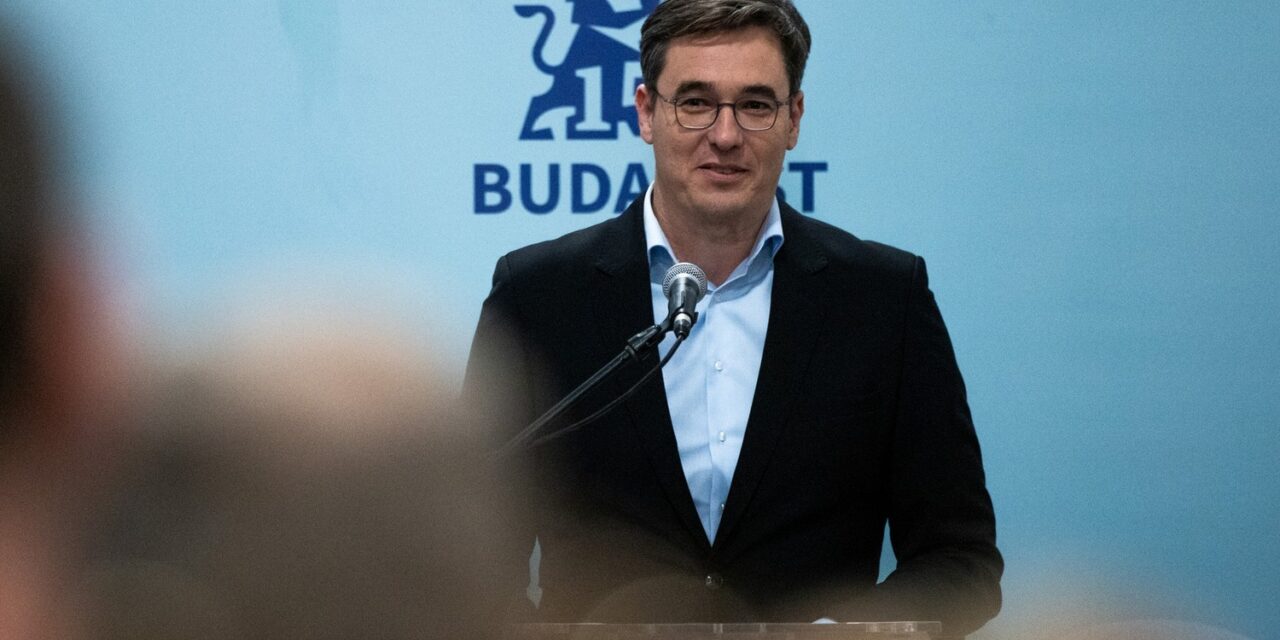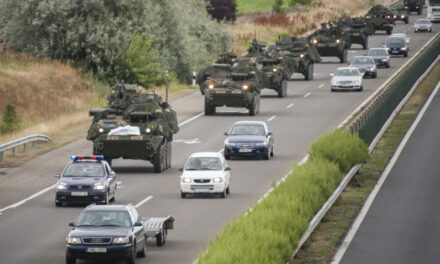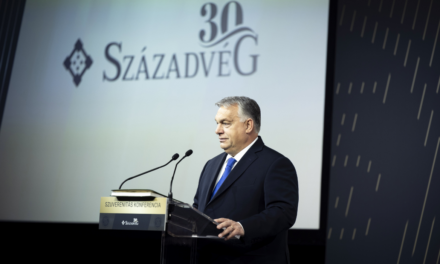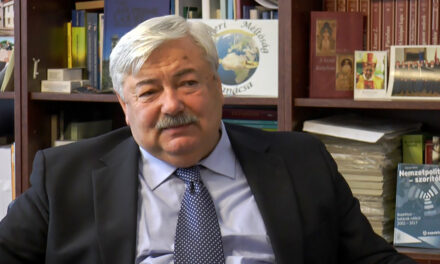His own are on the verge of losing, since the slogan "total opposition unity" no longer sounds good in left-liberal circles due to the recent election fiasco, so it is not surprising that the mayor chose another position for himself. A snapshot of the balance of power on the left. Written by Dániel Kacsoh.
Local government and European Parliament elections are approaching, but the opposition is still full of infighting and scandals, cooperation is faltering, and even the chances of the mayor's re-election seem to be diminishing.
"He spoke with impressive confidence, but the letter was late," lamented Népszava editor-in-chief Péter Németh together with former MSZP president Ildikó Lendvai after an interview with Gergelly Karácsony in the ATV studio. Previously, the mayor elaborated on his appeal in which he called on the opposition parties to cooperate in the upcoming municipal election.
Karácsony emphasized several times in the interview that despite what the LMP says about him, he is actually not upset, at most angry.
Of course, the temper is somewhat understandable: in a public speech in October, the mayor announced that within a few weeks he would bring together an alliance not seen since the previous year, at least with those parties that are willing to do so, and also play the piano for the nominations of the Budapest districts.
However, this has not taken place since then, and as Péter Németh, who is also visibly worried, pointed out: there are not even "intentions" to reach an agreement.
Due to the failure of the 2022 capital election, the slogan "total opposition unity" no longer sounds good in left-liberal circles, and now some tension is visible in the camp.
The words of the editor-in-chief of Népszava reveal this, but we could also quote from others. In any case, the expectations of the relevant parties in the lunar court are increasing again.
We will come back to what other issues Karácsony might be concerned about, but before that it is worth taking a brief look at what the camp of Fidesz challengers, who have promised to nominate their candidate for mayor by March, looks like.
For the time being, the increasingly active former BKK leader and state secretary for transport, Dávid Vitézy, has not announced that he will accept the LMP's invitation to run for mayor, but now it is hard to imagine that the Péter Ungárs will end up standing behind Gergely Karácsony.
Jobbik has already announced its own aspirant in the person of Brenner Koloman. Due to the anomalies surrounding the Lánchíd investment, he proposes to set up a capital commission of inquiry. Karácsony laughed it off, Fidesz supports the initiative, it is not yet known about the others.
Momentum hardly dares to take part in such work, especially since last year DK, who was previously very critical of the mayor, stood behind the ex-chairman of Párbeszéd, but for now it avoids the joint list proposed by Ferencsány Gyurcsány. Moreover, in several districts, like the LMP, it announced independent mayoral candidates.
The reluctance is understandable: Anna Donáth, returning to the head of the party, took a hard stand in front of the DK, demanding the replacement of the culture of lies, but now the party is once again threatened by the fear of cooperation with the fallen prime minister.
On the proposal of Mi Hazánk, which is also running its own mayoral candidate for the local government campaign - supported by Fidesz-KDNP - it will again be possible to enter the Capital Assembly with party lists. Upon hearing this, the DK immediately threw in the idea of a joint list, which it obviously does not intend in the case of the European Parliament election.
Unlike the MSZP. The socialists would prefer, and even demand, a complete collapse in both votings - on the level of words, to make the camp against Viktor Orbán capable of striking, but in fact the party's catastrophic support may be the reason.
In the case of Párbeszéd, for similar reasons, cooperation is out of the question, without which it would have no chance. The party most fiercely and loudly supports the separate LMP that mentions the hysterical opposition.
However, it is interesting that Karácsony, who previously spoke with full confidence about his revival, suddenly appeared on his party's list in the European Parliament.
It is possible that it is only a symbolic gesture, but if he were still sure of his victory in June, he would not even give anyone a chance to evaluate the EP candidacy proposed by his predecessor, Gábor Demszky of the SZDSZ, as an escape route.
Meanwhile, the scandal of the 500 million forint subsidies in the form of dollars and francs is still hanging over the head of Christmas. For this reason, for example, the Hungarian Kétfarkú Kutya Párt refuses to appear on its posters.
Not only the protest party is upset because of the mysterious pre-election "charity" that is the subject of the ongoing investigations: the LMP, the MSZP and the DK did not take kindly to the developments either, especially not after it was revealed that Péter Márki-Zay's movement received HUF 4 billion received for campaigning from overseas. It is worth interjecting: Action for Democracy, which manages it, and its founder, Dávid Korányi, who worked as chief advisor to Gergely Karácsony for many years, also appeared among the forgers of the Polish government change.
The mayor's worries are compounded by the fact that tax authority investigators recently conducted a house search at A-Híd Zrt., the contractor of the Chain Bridge renovation, which is 5 billion forints more expensive than the original amount, with reduced technical content and is being carried out on a sliding scale.
According to the official information, they acted in another case - the case of Vig Mór Vig, the brother of Dávid Vig, director of Amnesty International Hungary, who is suspected of fraud - but it cannot be ruled out that the developments are connected. For reasons of clarity, Jobbik recommends forming a committee.
Meanwhile, Magyar Nemzet has revealed that the investigations into the sale of the City Hall have been combined, which suggests that we may soon have more official information.
And that's not all.
Last Friday, BKK unexpectedly introduced fewer flights. In addition to Dávid Vitézy, the LMP, the Urban and Suburban Transport Association (VEKE) and the Közlekédő Tömeg NGO also came out against the change. The latter was also mentioned by the transport company in its announcement regarding the transformation. And although according to the BKK, they consulted with the Traveling Public during the preparation, the parties involved deny this. It also caused confusion in the force when Gergely Karácsony categorically stated that there was actually no question of a reduction in flights, only a reasonable reorganization of capacities, while the head of BKK, Walter Katalin, did not deny the fact of the reduction of flights, but only apologized to the traveling public who were upset for the reason.
Scolded by Karácsony, Vitézy initiated a consultation with the capital authorities, also mentioning that the last time such a reduction in flights was introduced during the time of MSZP deputy mayor Miklós Hagyó, against which he protested vehemently as a citizen. Just like now.
The mayor, who is embroiled in a financial dispute with the government and categorically refuses to pay certain taxes, can therefore have a lot of trouble due to the complications of city management, the contradictions straining the opposition and the lack of trust in his person. Although according to the surveys, there is reason to be confident about his results, and it also seems certain that most of the opposition parties will support him, his victory is by no means an envelope. His appearance on the EP list suggests that he already sees it this way.
Zoltán Kiszelly, the analyst of Századvég, stated in Mandiner Reaksió's broadcast that the opposition parties are in fact "one branch", and that they will unite no later than the 2026 parliamentary elections.
He believes that some of them have fallen in love with the Polish model for the time being, and Momentum in particular is confident that it can form a pole to change the opposition and thus grow above the DK in the domestic competition. The dispute between them is mainly about the mandates, everyone wants, for example, a faction with significant state resources.
The analyst said that the Gyurcsánys are now using Karácsony in exchange for their support to "put everyone in the hole", because then no one will rise above them.
Despite the economic problems, high inflation and the uncertain international environment, the support of the governing parties has not changed significantly since April last year, but the opposition side has continued to fragment, and the popularity of the individual formations has rather waned over the past period, according to research presented by the Nézőpont Institute. All institutes measure the government parties at around 50 percent among the sure voters, and the parties of the 2022 opposition coalition together at between 19 and 30 percent.












